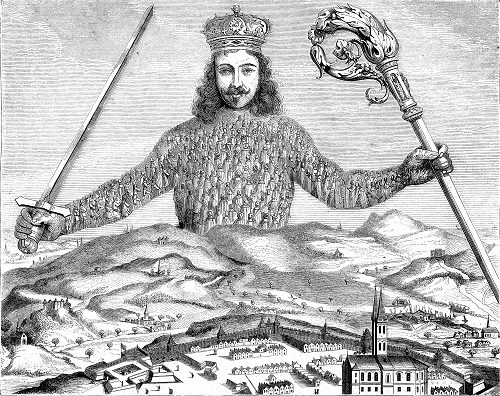The Different Forms and Theories of Governments
Government is a group of people, either elected or imposed, who exercise rule on behalf of citizens. The government should maintain law and order, ensure equality and provide public goods (Goldman et al, 2008). In the social contract theory, before government existed, life was short, brutal and nasty. Insecurity was rampant due to the fact that there was no system that enabled there to be order in the society so it was survival of the fittest mode of life. Hence, man found a way to improve the situation, which was by giving up some of his powers to a higher authority called the leviathan, to control his selfish nature. They drew up a contract and that was the beginning of government. Ever since, there have been many forms of governments but for the interest of this paper, only three will be discussed: presidential, totalitarianism, and democracy.
Totalitarianism is a form of government where there is no control of state power in the country and hence the ruling class seeks to consolidate its power via whatever means possible. The state is usually under the control of one person, a faction or a ruling party with an ideology that controls all the public and private aspects of the people. This is the case in China, where the ruling party dictates the affairs of the country and has for years consolidated its power (Li,2008). The state also controls the flow of information in to and out of the country. That means that there is state controlled media and the government filters internet content. There is also control of the market economy whereby the state owns the wealth of the nation while the people are left to have a little.
There is also the presidential form of government where the executive and the legislature exist as two separate entities. In the USA, the Congress and the presidency are separate even though they both check each others powers (Goldman et al, 2008). The cabinet is made up of members who are not in the congress but their appointment must be approved by the congress. They exist for a set time in office, after which elections are held. Likewise in Indonesia, the system is the same in that the president can be impeached by the congress if he does not perform according to the required standards and has the power to veto bills passed by the parliament (Ramage, 1995). This system of government has advantages in that decision making is faster and that there are checks and balances which prevents abuse of power. But in cases where there is change of power, there is a stop of polices as different presidents come up with different ways of solving problems for example: In the US, the Bush - Obama transition that led to economic policies being changed.
Democracy is another form of government. It comes from the Greek word demos, which means ‘people’ and kratos, which means ‘rule’. It is a form of government that is meant to ensure equal representation of people of all kinds and also that they are free to express their views without fear in order to create a fair and just society (Goldman et al, 2008).
Democracy has a number of problems. In the USA, apathy is a factor that has caused democracy to fail in that since it is a capitalist system, only the people with money rule the day. The various interest groups who lobby in congress corridors to stop policies, bribe legislators at the expense of the people who elected them into power. Also, having money means that one can be elected in parliament as elections are costly and also that the electorate can be bribed to vote in a particular way or for a particular person. Although there is free press, this could be an impediment to democracy as the media can favor a particular idea more than the others as long as the candidates have money. There is also the problem of immigrants; the US government finds it hard to integrate them.
In China, democracy has failed due to a closed system of government that has restricted the flow of information in and out of the country and also the control of media content in that whatever the state does cannot be criticized. China views democracy as a Western ideology and hence seeks to protect its citizens from that influence. Even though there are elections, only the candidates that the ruling party approves will be elected and this means that the people do not have a say on who will represent them (Li, 2008). In Indonesia, democracy has failed because of threats from militias who bring terror and intimidation to the people causing them not to vote. This happened in East Timor, where the militia supporting the ruling party intimidated people to vote in a certain way (Ramage, 1995). There is also foreign interference in elections whereby different world powers want a government that will support their interests. The US will tend to back a moderate person who will not tolerate the radical Islamists.
In conclusion, I still believe even with all these problems caused by the government that it is necessary for us to have one. Countries in a state of anarchy are chaotic; women are raped, children are violated, there are mass killings as people are struggling to be in power because there is no one to maintain order. History has taught us that the people have their destinies in their hands and that they can overthrow a government that does not advocate for their interest and put in place people who can bring the change that they want.

